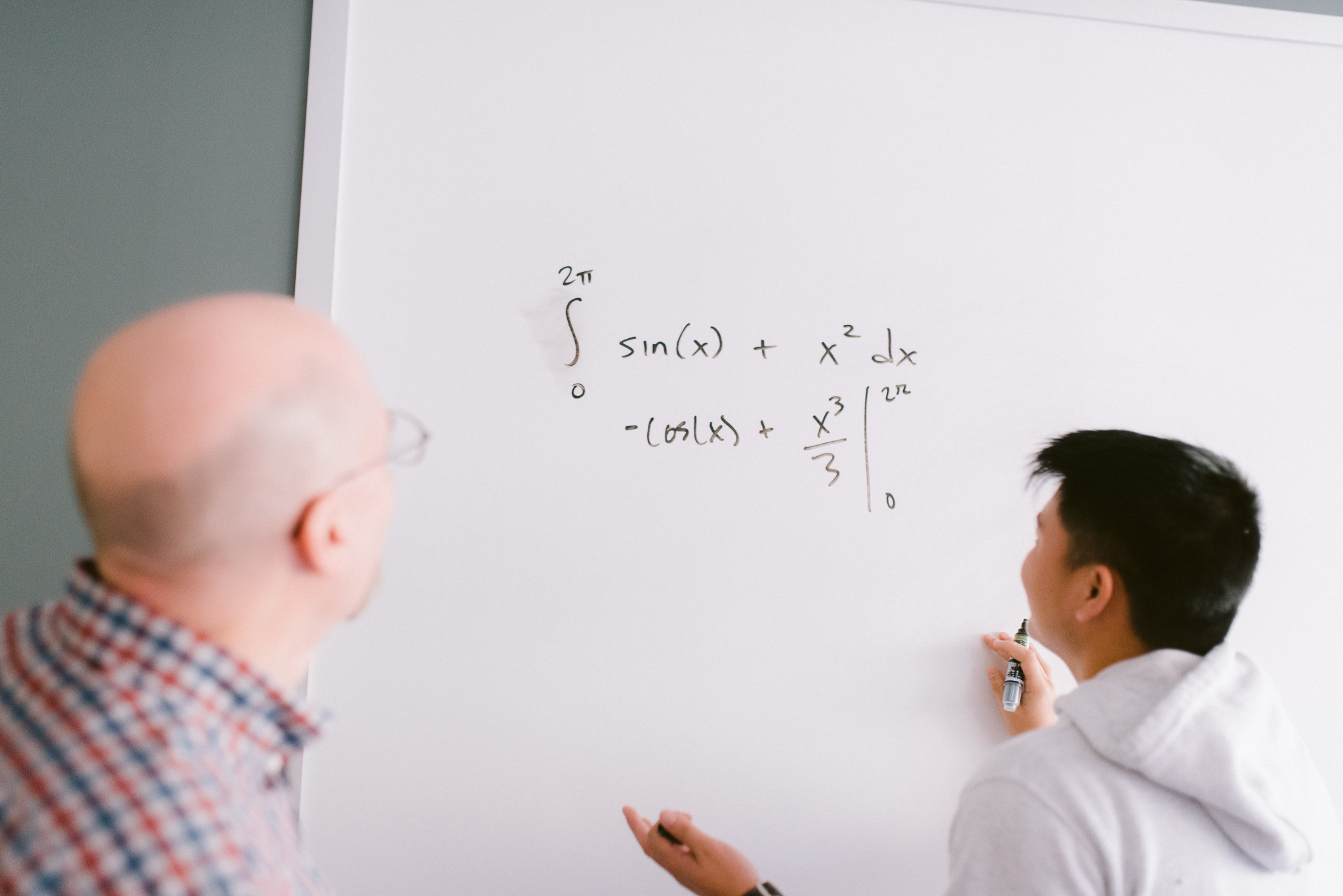Applied Mathematics
A Bachelor of Science in Applied Mathematics focuses on the practical application of mathematical principles to solve real-world problems in various fields.

A mathematics degree offers graduates a wide range of career options. They can work as mathematicians, using their analytical skills to solve complex problems in fields such as finance, engineering or research. Others become actuaries, analyzing financial risks and probabilities for insurance companies or financial institutions. Some graduates pursue careers in education, becoming math teachers at the K-12 level or professors at colleges and universities.
Additionally, opportunities exist in data analysis, where graduates can work in industries such as healthcare, technology or marketing, using mathematical models to interpret and make predictions from data. With their strong foundation in mathematics, graduates are well-equipped for diverse professions that require logical thinking, problem-solving and quantitative analysis skills.
Average salary is based on a 2024 NACE Salary Survey. Job posting data is for mathematician positions and is provided by Lightcast. This number represents unique job postings from companies looking to hire in the last 30 days as of May 2024.
Major in mathematics at USF and your instruction will span a variety of mathematical topics and will prepare you to enter an engineering program, attend graduate school, teach or work with a team performing analytical work. Your mathematics degree options include:
A Bachelor of Science in Applied Mathematics focuses on the practical application of mathematical principles to solve real-world problems in various fields.
A Bachelor of Science in Mathematics offers students a comprehensive study of mathematical theory, applications and problem-solving skills.
A minor in mathematics is designed to complement a student’s major field of study by providing a solid foundation in mathematical concepts and techniques.

The best way to truly experience USF is to see it for yourself! Embark on a virtual tour or arrange an in-person visit to immerse yourself in the life of a University of Sioux Falls student.
Your future is calling at USF. Dive into the application process or request more information to embark on your journey today.
Tutoring can be an effective resource to help facilitate a student's academic success. At USF, we offer regular tutoring sessions for students seeking help with mathematics, statistics, physics or computer science. Our tutoring center is staffed with well-qualified USF students majoring in relevant subjects, who are eager to work with you.
No appointments are necessary, and sessions are free to all USF students; attend as often as you wish to obtain guidance on homework, or assistance studying for exams. Or, if you are finding that you have become a little "rusty" when it comes to your arithmetic or algebra, the tutor can practice these skills with you.
There are many reasons to visit us at the USF Math/Physics/Computer Science Tutoring Center; if any of these resonate with you, we hope you will stop by!
Depending on your chosen major, your learning experience at USF will include collaborative research projects with our faculty. And with your educational experience augmented by such opportunities, you might choose to continue developing your research career by enrolling in a graduate program in an allied field upon completion of your USF degree.
Research opportunities include:
As a student majoring in the mathematical sciences, you will complete a research project during your senior year at USF. The project culminates in a research paper and presentation. You have the opportunity and are encouraged to present your work at regional and national mathematics conferences.
As part of the Abstract Algebra class, you will engage in an ongoing research project with classmates in both theoretical and programming aspects.
You will be encouraged to continue work from a class or to begin a project outside the traditional curriculum in many natural science programs, including mathematics and exercise science.
USF gives you opportunities beyond earning your degree. Explore what life is like for a USF student and learn more about paying for college.
Discover a student community filled with organizations, events and support. The USF campus experience fosters growth and opportunity for every student.
Learn More »In Campus Ministries, we focus on loving Christ and serving Him. No matter what denomination you are, you'll feel welcome.
Learn More »Explore our tuition and cost details to see how USF can be a feasible and rewarding choice for your academic journey.
Learn More »USF is among the most affordable institutions in the region. We’re here to explain USF’s financial aid details, processes and options for all students.
Learn More »Activities of USF's Math and Computer Science Club are both social and educational in nature and include "Pi Day" celebrations, math competitions, game nights, movie nights, ice cream socials and picnics.
Goals of the USF Math and Computer Science Club: